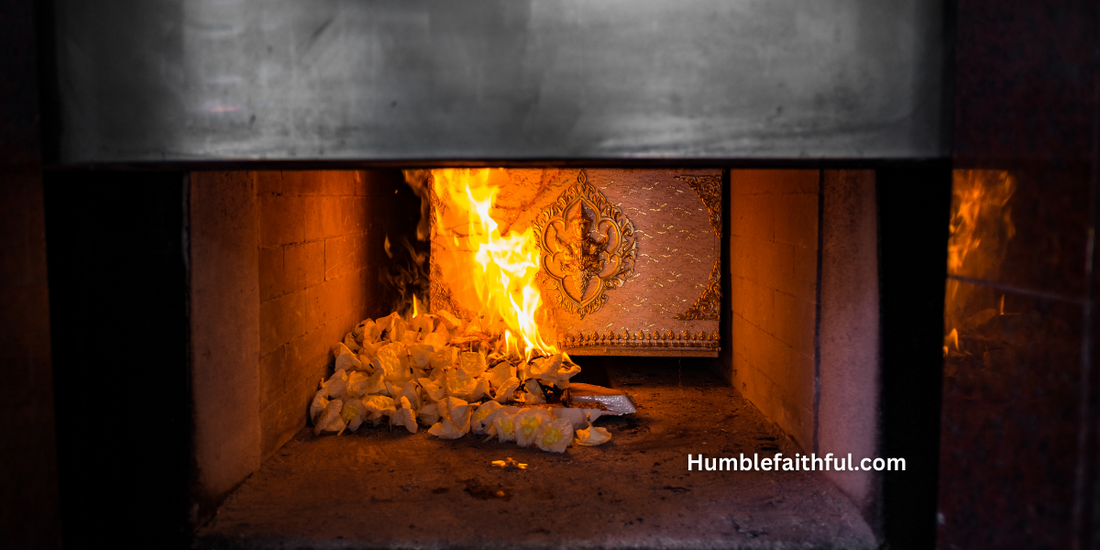Cremation is a practice that has been gaining popularity in recent years. It involves burning a deceased person's body to ashes, rather than burying it in the ground. While this practice has become increasingly common, some people are still uncertain about whether it is acceptable from a biblical perspective. In this blog post, we will explore what the Bible says about cremation, including whether it is a sin for a Christian to be cremated, whether a cremated body can rise, what the Bible says about keeping ashes, and reasons against cremation.
Does the Bible say a cremated body can't rise?
One of the concerns that some people have about cremation is whether a cremated body can rise again at the resurrection. However, there is no clear biblical teaching on this matter. The Bible does describe the resurrection of the dead in 1 Corinthians 15:42-44, which states that our physical bodies will be transformed into spiritual bodies. While this passage does not specifically mention cremation, it suggests that God has the power to transform our bodies regardless of how they were disposed of after death. Ultimately, we can trust in God's sovereignty and know that He has the power to raise the dead, regardless of how their bodies were handled after death.
Is it a sin for a Christian to be cremated?
There is no clear teaching in the Bible that forbids cremation, nor does it mandate burial as the only acceptable form of disposal for a deceased body. Christians should be guided by their conscience and personal beliefs when making decisions about cremation or burial. It is important to remember that our bodies are temporary vessels that will ultimately return to dust, and our focus should be on honoring God and living out His will while we are alive.
What does the Bible say about keeping ashes?
The Bible does not address the issue of keeping ashes directly, but it does provide examples of people keeping physical reminders of the dead. In Genesis 50:26, for example, Joseph carried the bones of his father, Jacob, out of Egypt and buried them in the land of Canaan. Similarly, in 2 Samuel 21:12-14, the bones of Saul and his sons were retrieved from where they had been hung and buried in their ancestral tomb. These examples show that keeping physical reminders of the dead is not inherently wrong, and it can be a way to honor and remember loved ones who have passed away.
Reasons against cremation
While there is no biblical mandate against cremation, some people may choose to avoid it for personal or cultural reasons. Some cultures view cremation as disrespectful or consider it to be a desecration of the body. Additionally, some people may be uncomfortable with the idea of their loved one's body being burned, or they may prefer to have a physical grave site that they can visit to pay their respects. Others may choose burial over cremation because it aligns with their beliefs about the importance of the physical body and its connection to the soul.
In conclusion, while the Bible does not provide clear guidance on cremation, it does provide principles that can guide our decision-making. As Christians, we should focus on honoring God and loving our neighbors, rather than being overly concerned with how our bodies are disposed of after death. Whether we choose cremation or burial, we can trust that God has the power to raise the dead and transform our bodies for eternity.
